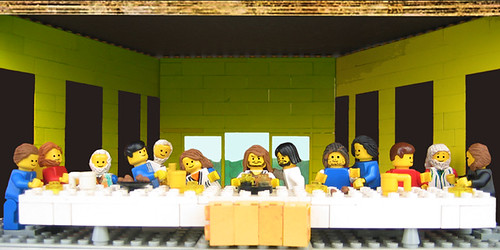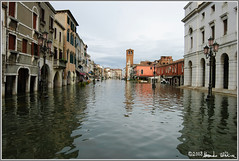What can be considered plagiarism?
Plagiarism is a delicate matter which can regard everybody, not necessarily students. I have to admit that its concept is not very clear to me. I think that no one in the world is not influenced by other ideas or creations: from painters who belong to the same artistic movement, to poets who use the same sytle of writing being inspired by the same poet, to musicians which grew up listening their favourite band. The line of demarcation between influence and plagiarism is not so clear-cut. For this reason, I consider plagiarism the intention to misappropriate other's work pretending that it is your own work.
Types of plagiarism
There are many ways to do it:- using the common "copy and paste", where you reproduce the entire work or a part of it as it is, without changing a word;
- paraphrasing contents, where you change structure and use synonyms, without moving away from the original;
- using the same identical bibliography which someone used once to write his paper;
What we can do to avoid it
Here there are some suggestions:
- try to think with your own head, even if it takes time;
- quote the original text, adding the source;
- express your opinion in order to talk about other's ideas adding something personal;
- if you want to share another person's opinions or studies with your readers, you can summarize them citing the author;
When YOU are the victim
Of course, if there are lots of people who commit plagiarism, there are also lots of people who undergo it. It must be very difficult to find out, there are so many books, so many people, so many ideas!Anyway, concerning online plagiarism (which is something that regard us), I found an interesting blog post, where the author talked about a software called FairShare, which is able to discover who copies your posts. Interesting, isn't it?:)
This image was taken from udronotto, flickr, I suggest you to see the others!













This comment has been removed by the author.
ReplyDeleteThis comment has been removed by the author.
ReplyDeleteHi Francesca!
ReplyDeleteI completely agree with everything you wrote. I think it's very difficult to distinguish between influence and plagiarism, especially in the case of artists, the word meaning writers, musicians, painters, etc. You're right when you say that almost everyone in the world has been concerned with plagiarism. Many times I've found it difficult to paraphrase other people's ideas and move away from the words/sentences they had used. I’ve also found out about tools which can help bloggers detect plagiarism; I’ m so curious to learn how to use them!
From a linguistic point of view, your post was well written. Of course I'm not mother tongue, so you'd better take my corrections with a pinch of salt!
- I think the verb 'regard' is too formal even though it's correct. I'd use 'concern' instead;
- in the second line, when you’re talking about the word ‘plagiarism’, I'd say its 'meaning' rather than its 'concept';
"No one in the world is not influenced": I suppose the sentence is grammatically incorrect because you can’t use two negatives (Falinski docet…). I suggest you write: "almost everyone in the world has been influenced". What do you think? ;
- the verb 'listen' needs to be followed by the preposition 'to'. For example: are you listening to me?;
- instead of "other's work" you should write "other people's work";
- I guess you need to put the definite article before the word 'structure'; I’m not so sure though because my monolingual dictionary says that the word ‘structure’ can be both countable and uncountable;
- when you write “same identical”, I believe you need to choose either one or the other. Alternatively, you could write “the very same bibliography”;
- you forgot to put the 's' of the 3rd person singular at the end of the verb 'regard', but I'm sure it was just a matter of distraction ;)
Don't get angry with me for my feedback. I'm sure I've made mistakes too, while trying to correct yours; so, take it easy!
Serena